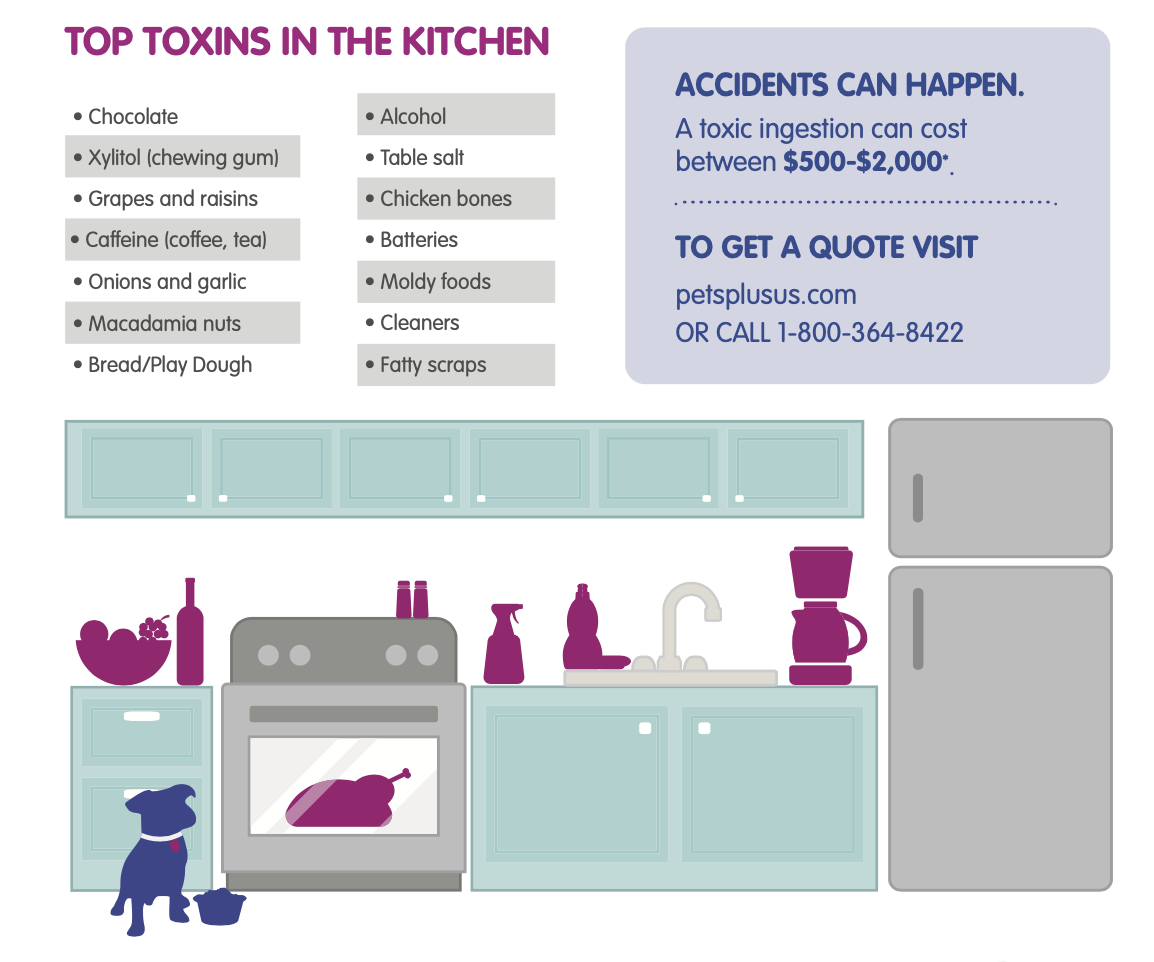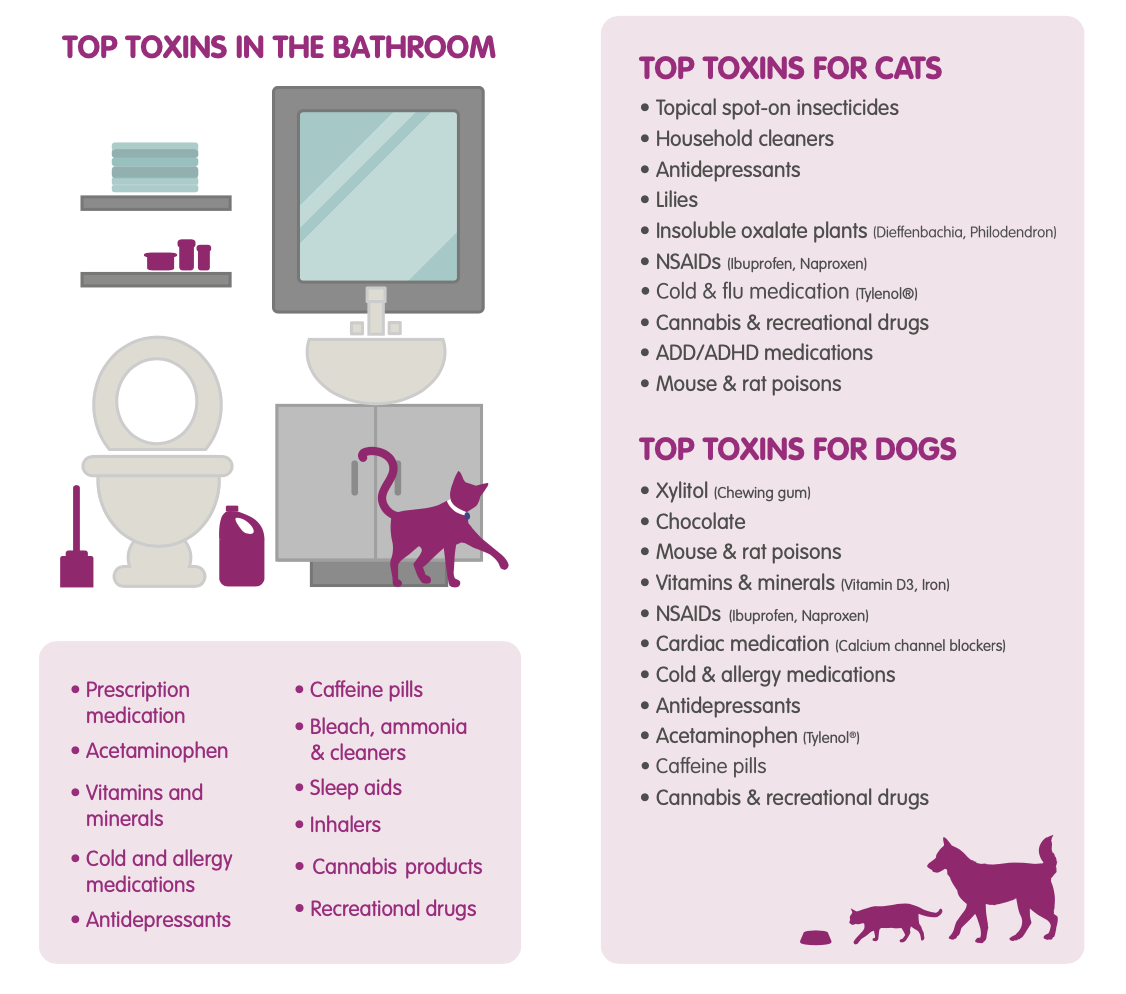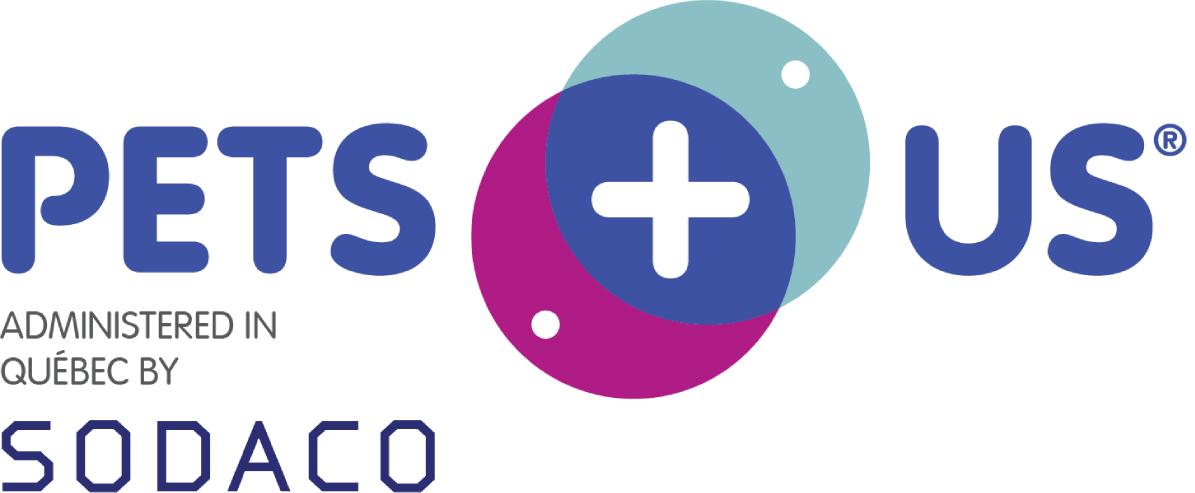
How to Prevent Pet Poisoning
March is Pet Poison Prevention Awareness Month -which means that it’s time to brush up on prevention tactics! With proper awareness, you can prevent poisoning emergencies before they happen.
Perilous People Food
Chocolate isn't the only "people food" that's toxic to pets, but we tend to hear about it the most. Avocados, grapes, onions, garlic, sugar-free treats, coffee, tea, and macadamia nuts are all toxic. That's why the kitchen can be quite a dangerous place for your pet. Keep these and all other potentially poisonous foods out of their reach.
Are you having a dinner party? Guests may be tempted to feed Fido some table scraps. Make sure you set the ground rules before you serve the appetizers and main meal so that no accidents occur.
Note: It's always best to exercise caution when monitoring your pet's food intake. Just because one item may be less toxic than another, it does not mean your pet should eat it in excess. If you have any questions about the toxicity of certain foods or observe a change in your pet's behaviour after consuming "people food," please contact your veterinarian or local animal clinic immediately.
No More Playing Doctor
A sick pet can make any human jump into protective mode. When your pet is feeling under the weather, don't reach for the bottles in your medicine cabinet. Doing so can have life-threatening consequences. Keep human medicines out of your pet's reach and only give your pet medications prescribed by their veterinarian. Leave the medical care to the professionals. Snuggling together under a warm blanket? That's all you!
Act Fast
If you know or suspect that your pet has ingested something poisonous, seek professional veterinary care immediately. Given how quickly poisons can work, there won't be time to search the web for a solution. Your first move should be calling your vet. If you get the clinic's voicemail or it's after hours, bring your pet to the nearest emergency care facility. The sooner you seek treatment, the better.
Essential Oils
Essential oils are becoming super popular these days. Enthusiasts swear by their therapeutic properties, but can pets reap the rewards too? Many essential oils are not safe for pets. Some can cause organ damage as well as skin irritation if applied directly to your pet's fur. Excessive paw and fur licking can lead to dangerous toxicity. Talk to your vet before using essential oils on or around your pets and make sure your pet always has a way to leave a room with a diffuser running.
Poison Proofing
Ready to put your poison prevention knowledge into practice? Then it's time to learn how to poison proof your home. We put together a handy infographic that'll help you identify the most common household poisons room by room. You may find hazards that you hadn't realized were dangerous!

*Source: 2021 PTZ Insurance claims data. [Value of claims in $ CAD].

A veterinary team is committed to keeping pets safe and their humans well informed. If you ever need advice on poison-proofing your home or want to settle the debate on whether a particular food is toxic to pets, your vet is your best resource. Don't be afraid to call on their expertise whenever you need it!
We're more than just insurance! We've put together a group of products and services make being a pet owner easier, and the best part is that they are included with our coverage plans. Learn more about our Blue Ribbon Benefits* and having access to the Pet Poison Helpline and more!
*Blue Ribbon Benefits are not available in Quebec.
